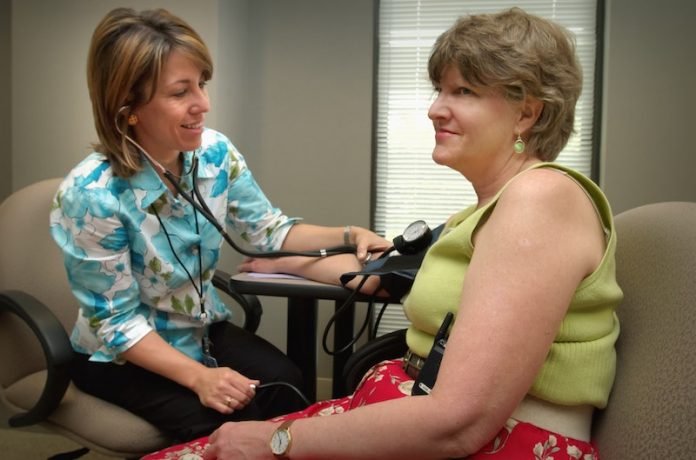
Scientists from the University of Campinas found that transcranial direct current stimulation (tDCS) could be an option to help control resistant high blood pressure.
The research is published in Frontiers in Cardiovascular Medicine and was conducted by Bruno Rodrigues et al.
Resistant hypertension is high blood pressure that does not respond to aggressive medical treatment, defined as daily administration of at least three classes of antihypertensive drug (including a diuretic) at maximally tolerated doses.
Patients with the disease are at high risk of stroke and heart failure.
In the study, the team examined the effects of a single session or ten sessions of tDCS on blood pressure in 13 volunteers with resistant hypertension.
They found that following the single stimulation, 24-hour systolic pressure fell in some patients by 15 mmHg. A reduction of this magnitude strongly decreases cardiovascular risk.
Previous research had revealed tDCS’s potential as a method of modulating control of the autonomic nervous system and lowering blood pressure in patients with mild to moderate high blood pressure.
This pointed to the possibility of its use to treat resistant high blood pressure.
The researchers acknowledged that some of the effects of tDCS require further study.
Both acute and more prolonged stimulation brought about a reduction in modulation.
These findings may also be associated with increased levels of an anti-inflammatory cytokine in blood plasma, such as interleukin-10. Cytokines are proteins secreted by immune system cells.
The next step will be to find out whether tDCS can modulate the autonomic nervous system directly.
If you care about blood pressure, please read studies about tea compounds that could reduce your blood pressure, and the key to treating high blood pressure.
For more information about health, please see recent studies about how to keep high blood pressure in check, and results showing these people more likely to have uncontrolled high blood pressure.
Copyright © 2022 Knowridge Science Report. All rights reserved.



